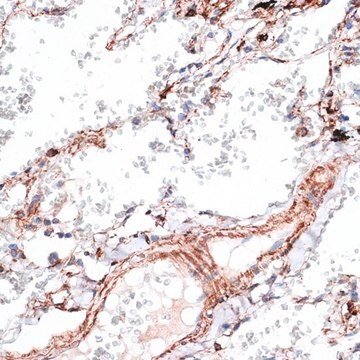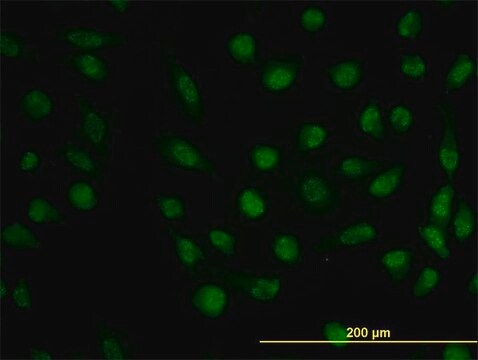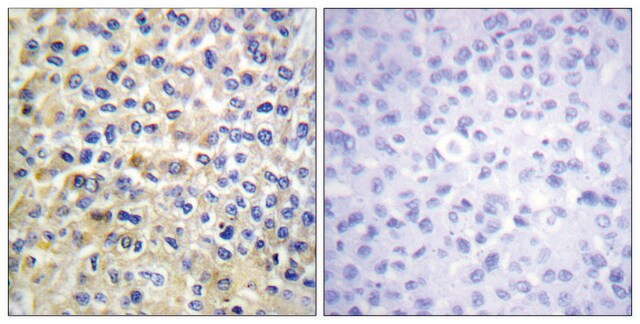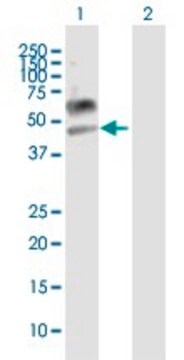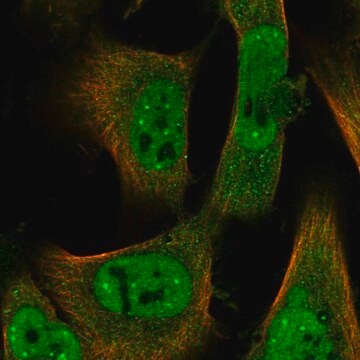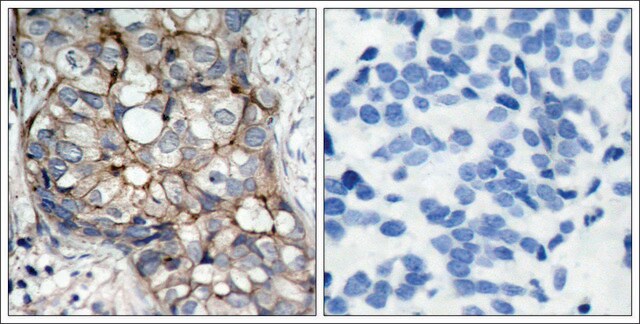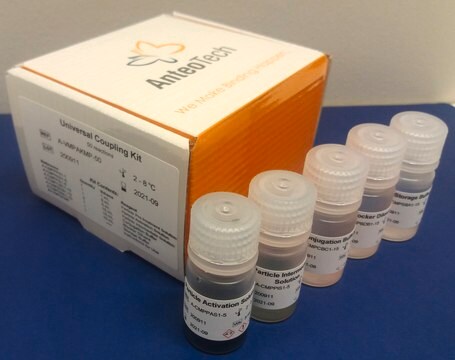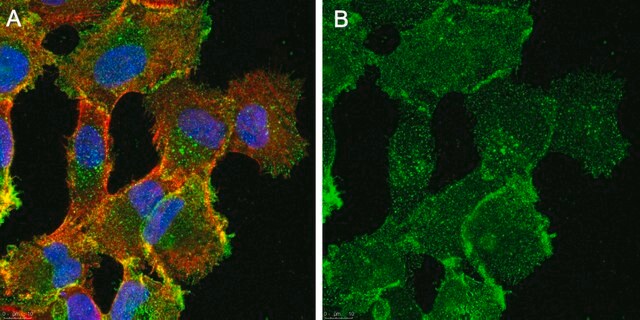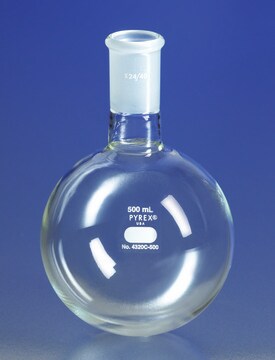WH0002119M2
Monoclonal Anti-ETV5 antibody produced in mouse
clone 7C10, purified immunoglobulin, buffered aqueous solution
Sinónimos:
Anti-ERM, Anti-ets variant gene 5 (ets-related molecule)
About This Item
Productos recomendados
biological source
mouse
Quality Level
conjugate
unconjugated
antibody form
purified immunoglobulin
antibody product type
primary antibodies
clone
7C10, monoclonal
form
buffered aqueous solution
species reactivity
human, mouse, rat
technique(s)
indirect ELISA: suitable
western blot: 1-5 μg/mL
isotype
IgG1κ
GenBank accession no.
UniProt accession no.
shipped in
dry ice
storage temp.
−20°C
target post-translational modification
unmodified
Gene Information
human ... ETV5(2119)
Categorías relacionadas
General description
Immunogen
Sequence
LPEPGPQQQTFAVPRPPHQPLQMPKMMPENQYPSEQRFQRQLSEPCHPFPPQPGVPGDNRPSYHRQMSEPIVPAAPPPPQGFKQEYHDPLYEHGVPGMPGPPAHGFQSPM
Application
Biochem/physiol Actions
Physical form
Legal Information
Disclaimer
¿No encuentra el producto adecuado?
Pruebe nuestro Herramienta de selección de productos.
Storage Class
10 - Combustible liquids
flash_point_f
Not applicable
flash_point_c
Not applicable
ppe
Eyeshields, Gloves, multi-purpose combination respirator cartridge (US)
Elija entre una de las versiones más recientes:
Certificados de análisis (COA)
¿No ve la versión correcta?
Si necesita una versión concreta, puede buscar un certificado específico por el número de lote.
¿Ya tiene este producto?
Encuentre la documentación para los productos que ha comprado recientemente en la Biblioteca de documentos.
Nuestro equipo de científicos tiene experiencia en todas las áreas de investigación: Ciencias de la vida, Ciencia de los materiales, Síntesis química, Cromatografía, Analítica y muchas otras.
Póngase en contacto con el Servicio técnico